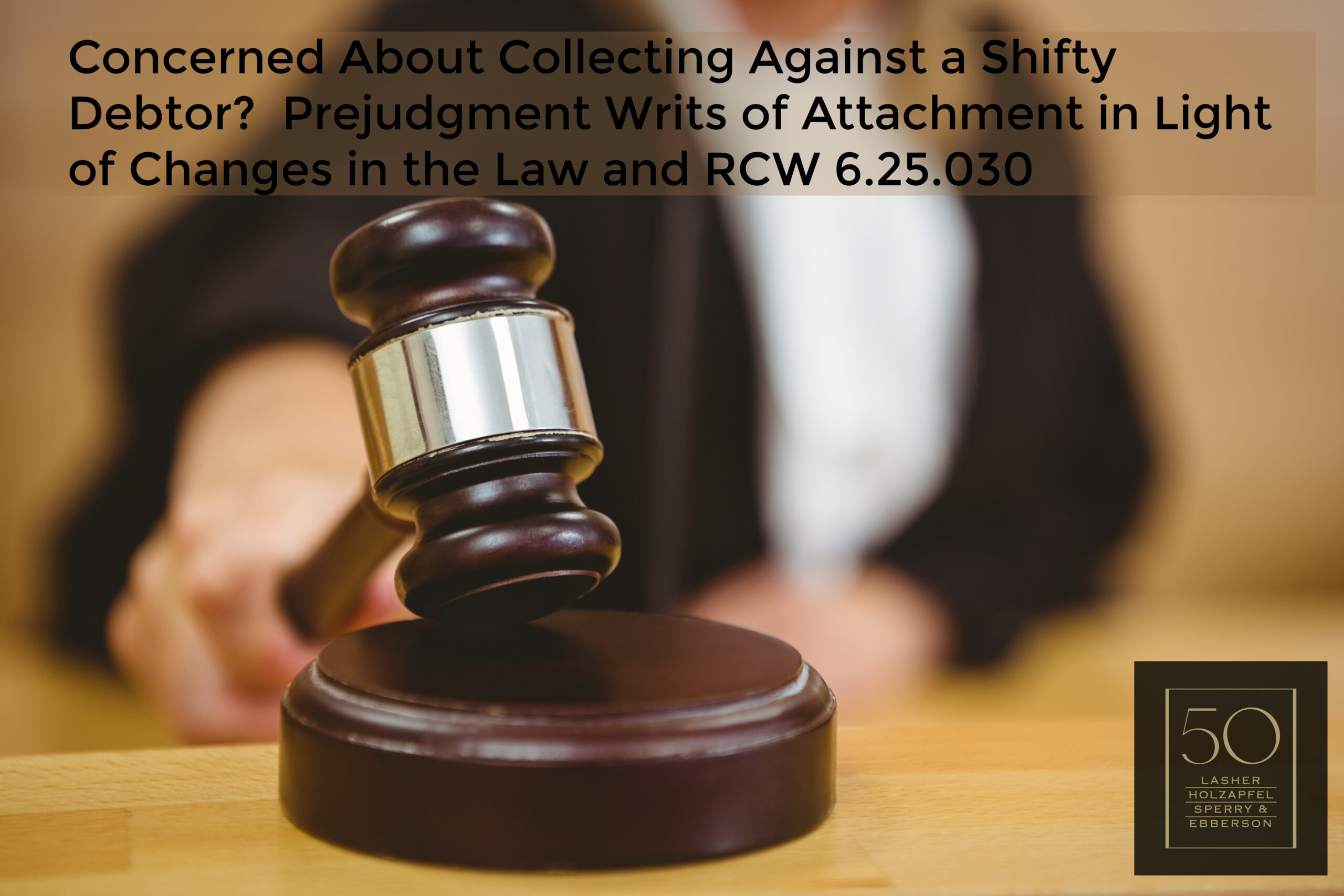Concerned About Collecting Against a Shifty Debtor? Prejudgment Writs of Attachment in Light of Changes in the Law and RCW 6.25.030

Posted on October 26, 2023 by Harman Bual
Collecting against an insolvent debtor (i.e., defendant) creates issues and places pressure on the creditor (i.e., plaintiff) to secure the debtor’s assets while final judgment in a lawsuit is pending. Oftentimes there is a concern that the debtor is secreting/moving assets or not maintaining assets prior to or during the pendency of the lawsuit, to avoid collection attempts once judgment is entered against the debtor. One strategy for a creditor to address is this is to seek a prejudgment writ of attachment pursuant to RCW 6.25.020 before the court enters a judgment in the case.
A prejudgment writ of attachment is issued before trial or the court’s ability to fully assess the merits of the case. A prejudgment writ of attachment generally directs the county sheriff to take possession of the debtor’s property that is subject to the writ until the lawsuit is adjudicated or the parties to the case stipulate otherwise. However, the creditor has the burden of establishing that it meets the statutory requirements for a prejudgment writ of attachment.
Since a writ of attachment may attach to the debtor’s property, inventory, tools, fixtures, or other assets, there are multiple factors a creditor must establish prior to a court issuing an order for a prejudgment writ of attachment.
Importantly, the statute does not require the debt to be due at the time a lawsuit is commenced. However, the creditor will need to establish a separate series of facts, supported by an affidavit, to move for a prejudgment writ of attachment when the debt has not become due.
A court may issue a prejudgment writ of attachment if the party seeking the attachment establishes that the debtor is indebted to the creditor and one or more of the following grounds exist:
- That the debtor is a foreign corporation;
- That the debtor is not a resident of this state;
- That the debtor conceals itself so that the ordinary process of law cannot be served upon the debtor;
- The debtor has absconded or absented itself from the debtor’s usual place of abode in this state, so that the ordinary process of law cannot be served upon the debtor;
- That the debtor has removed or is about to remove any of the debtor’s property from this state, with intent to delay or defraud creditors;
- That the debtor has assigned, secreted, or disposed of, or is about to assign, secrete, or dispose of, any of the debtor’s property, with intent to delay or defraud the debtor’s creditors;
- That the debtor is about to convert the debtor’s property, or a part thereof, into money, for the purpose of placing it beyond the reach of the debtor’s creditors;
- That the debtor has been guilty of a fraud in contracting the debt or incurring the obligation for which the action is brought; or
- That the damages for which the action is brought are for injuries arising from the commission of some felony, gross misdemeanor, or misdemeanor.
As of July 23, 2023, the Washington legislature removed the right to seek a prejudgment writ of attachment when the action is brought to recover on a contract, express or implied. Removal of this factor significantly limits a creditor’s ability to seek a prejudgment writ of attachment based solely on contractual rights.
In light of the recent legislative change, the business litigation attorneys at Lasher are available to help you assess whether a prejudgment writ of attachment is appropriate in your matter and to help navigate you through the statutory and other requirements to pursue a prejudgment writ of attachment as well as the debtor/defendant.

